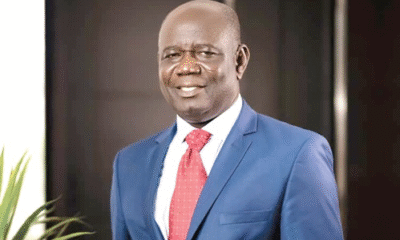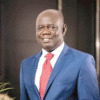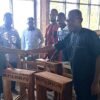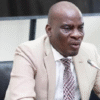Sam Jonah, Chancellor of the University of Cape Coast, has raised alarm over the current state of Ghana’s education system.
He expressed concerns about the system’s focus on rote memorization, which he believes fails to develop students’ abilities in critical thinking and innovation.
The existing structure, often referred to as “chew and pour,” prioritizes regurgitating information over fostering deeper understanding and creativity—qualities essential for success in today’s fast-paced, ever-changing job market.
Jonah, speaking at the Graphic National Development Series, pointed out that the education system is producing graduates who are skilled at memorization but ill-equipped for problem-solving, adaptability, and independent thought.
These deficiencies, he warned, leave young people unprepared for the challenges and opportunities of the modern workforce.
He called for a shift in focus toward teaching analytical thinking, creativity, and real-world experience, emphasizing the need to equip students with tools that foster both intellectual independence and a proactive attitude towards innovation.
Furthermore, Jonah advocated for a reformed national service program, suggesting that it should be military-based.
He believes that compulsory service in the military would instill important qualities in young people, such as discipline, resilience, and a sense of duty to the country.
Jonah argued that these characteristics are crucial for the development of responsible, confident individuals who will contribute meaningfully to society.
In a related development, Professor Stephen Adei, former Rector of the Ghana Institute of Management and Public Administration (GIMPA), echoed similar concerns.
He called for the integration of Artificial Intelligence (AI) into the educational curriculum, urging educators to incorporate AI not just as a tool for teaching but as a subject in itself.
Adei stressed that the combination of critical thinking and AI could help students navigate the complexities of the modern world, ensuring that they are not only consumers of technology but also creators and innovators.
Both Jonah and Adei’s calls reflect a broader movement within Ghana’s educational and political circles, urging a transformation that prepares the youth for an unpredictable future.
Education, they argue, must go beyond the memorization of facts and foster skills that align with the needs of a rapidly evolving global landscape.
As Ghana looks toward the future, both advocates stress the importance of reforming the system to encourage innovation, creativity, and critical thinking—skills that will ultimately help students thrive in a competitive and technology-driven world.
For Jonah, the changes should start with a fundamental rethinking of how students are taught, focusing less on what they memorize and more on how they think, adapt, and create.
This shift, he believes, will produce graduates who are not only knowledgeable but also capable of shaping the future.
Ghana’s education system, while producing a steady stream of graduates, must evolve if the country hopes to remain competitive in an increasingly globalized economy.
Through reform, focusing on critical skills like problem-solving and adaptability, Ghana can better prepare its youth to face the challenges of the 21st century.


















